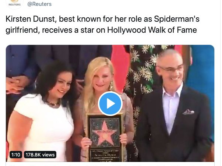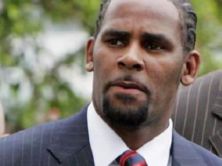Screenshot detail from FreezIt showing what the PBS hoax story page looked like. (Credit: FreezIt)
The website for the Public Broadcasting System was hacked this weekend in “protest” over their documentary on WikiLeaks, Reuters reported. The hackers, a group called “Lulz Boat,” posted a fake story on its website alleging that rapper Tupac Shakur was alive, even though Shakur was killed in 1996.
PBS has since removed the fake story, but Lulz Boat reposted it here. The story reported that Tupac is “alive and well in a small resort in New Zealand.” A link to the story on PBS’s website also appeared through Google News as of 6 p.m. last night.
 Here is the Fake PBS news story on Google News. Screen shot detail above. |
Lulz Boat also published “stolen passwords and other sensitive PBS information” on PBS’s hacked website, according to Reuters.
Reuters reported Lulz Boat isn’t connected with “Anonymous,” the hacking group that allegedly attacked the websites of MasterCard, Visa and other companies that cut off service to WikiLeaks last fall.
The New York Times added that Lulz Boat has also “attacked” media organizations like Fox News recently.
Lulz Boat has tweeted that it didn’t like PBS’s May 24 documentary on WikiLeaks titled WikiSecrets. CBS News reported that Lulz Boat issued a statement that it was “less than impressed” by WikiSecrets and that it “decided to sail our Lulz Boat over to the PBS servers for further … perusing.” Read the full statement here.
Lulz Boat also has tweeted frequently since late on May 29 about the hacking and the Tupac story. PBS has tweeted about the hacking to its 781,000 followers (as of yesterday afternoon).
WikiLeaks on Hacking, WikiSecrets
WikiLeaks tweeted about the PBS hoax Tupac story and also tweeted about WikiSecrets, calling the documentary a “smear of Manning & WikiLeaks.”
In advance of WikiSecrets’ airing, WIkiLeaks issued a statement claiming that it “has had intelligence for some time that the program is hostile and misrepresents WikiLeaks’ views and tries to build an ‘espionage’ case against its founder, Julian Assange, and also the young soldier, Bradley Manning.”
WikiLeaks included what it says is the full transcript of the interview “in accordance with our tradition of ‘scientific journalism’ (full primary sources).”
WikiLeaks also claimed that WikiSecrets features some interviews with people “who have a collective, and very dirty personal vendetta, against the organization” and that WikiSecrets left out “more credible voices.” Read the whole statement and transcript here.
Wikileaks volunteer Jacob Appelbaum also tweeted about the hacking: “The term for my feelings on the PBS hack is perfectly encompassed by one German word: Schadenfreude.”
PBS Responds
David Fanning, the executive producer of Frontline, reportedly told the Associated Press that the hacking is “a disappointing and irresponsible act, especially since we have been very open to publishing criticism of the film … and the film included other points of view. This kind of action is irresponsible and chilling.”
The AP added that PBS’s corporate communications vice president, Anne Bentley, stated that the hackers published the following information on PBS’ website along with the Tupac hoax story: “login information for two internal PBS sites: one that media use to access the PBS press room and an internal communications website for stations,”
PBS reported in its own statement that its “technicians” are “working to ensure any potential security gaps were closed.” PBS added that “no personal information or email addresses [of NewsHour readers] were compromised in any way.”
Cyber Attacks
PCWorld’s Tony Bradley weighed in on cyberattacks:
“My PCWorld peer Ian Paul notes that there seems to be a dramatic rise in high-profile attacks lately. I agree with Paul regarding cyber attacks in general, but I want to go a step farther and point out that hacktivism in particular seems to have caught on as an acceptable means of non-violent protest.”
PBS Ombudsman Michael Getler on WikiSecrets
PBS’s ombudsman, Michael Getler, wrote about the WikiSecrets documentary in his May 26 column. Getler noted that “only a handful of letters arrived” from viewers about the documentary. Getler characterized them all as “critical” and stated he republished all of them. Getler’s opinion of the program is that reporting on Wikileaks is “very complicated” and that “it is not a story made for television.”
Getler added that “the WIkiLeaks/Manning/Assange saga is also a moving target” so the news is always changing.
” I thought that even though only a small amount of a lengthy interview with Assange was used (it’s all available online), that he was able to defend himself and his operation and that the viewer clearly understood that this was an intelligent, articulate and committed person with a vision that demanded you pay attention.”
Viewers’ letters called the program “cheap and disgusting” with “subtle character assassinations,” a “smear job” with incomplete reporting, and unfair “propaganda.”
Read Getler’s full column and the accompanying viewer letters here.






